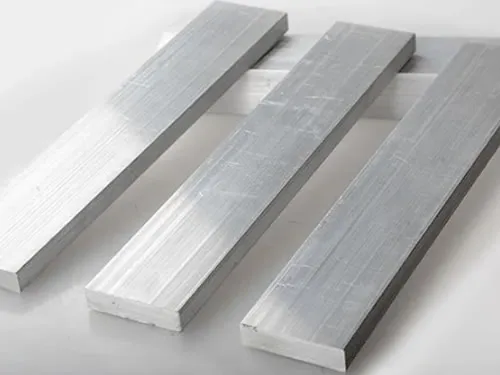Aluminum flat baris considered strong for its weight and can be suitable for a wide range of applications where strength is required. The specific strength of an aluminum flat bar depends on the alloy used.

Aluminum alloys are known for their high strength-to-weight ratio, which means they provide significant strength despite being much lighter than steel or other metals. For instance, the 6000 series aluminum alloys (such as 6061-T6) are popular for their good mechanical properties, including moderate strength, toughness, and corrosion resistance. They are often used in structural components, machine parts, and frames.
The strength ofaluminum flat baralso depends on factors like the temper (heat treatment process), thickness, and cross-sectional dimensions. Heat-treated and hardened aluminum flat bars can exhibit tensile strength comparable to some grades of mild steel, although with less overall mass.
However, it's essential to consider that aluminum generally has lower yield and tensile strengths than steel, so while it's strong relative to its weight, it might not be the best choice if ultimate strength is the primary concern and weight isn't a limiting factor. Nonetheless, for many industrial, architectural, and engineering projects, aluminum flat bar provides a cost-effective and lightweight alternative without compromising on adequate strength.

